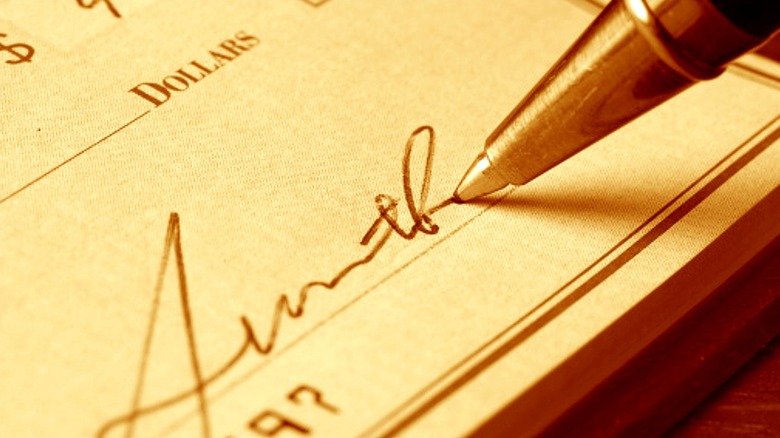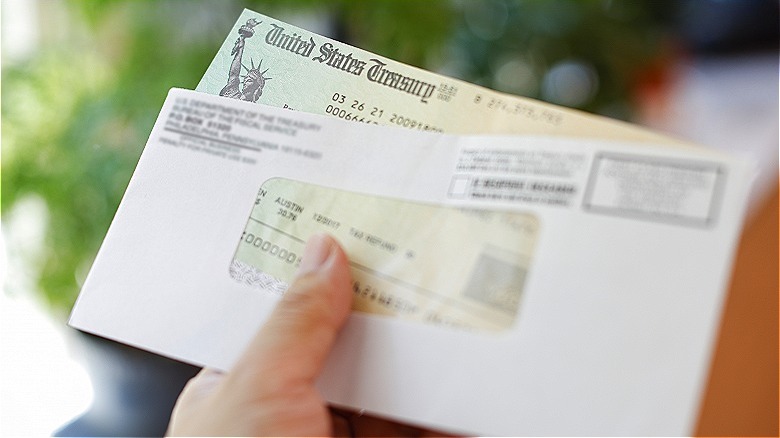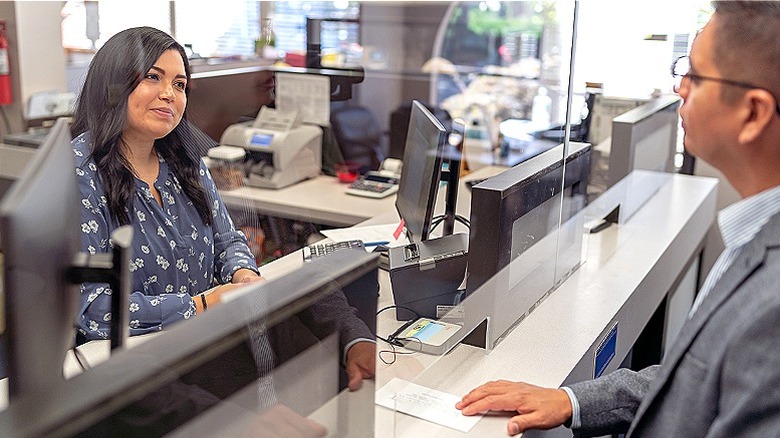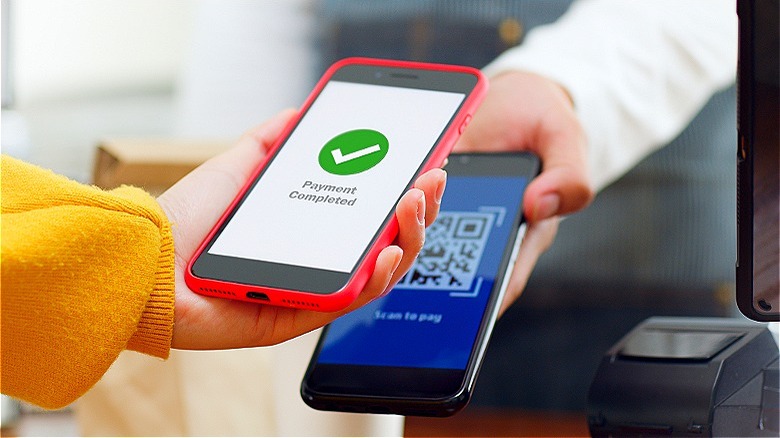What Should You Do If You Lose A Check?
It's hard to say which is worse: losing a check you received — like from an employer or IRS — or losing a check you mailed for an important bill, such as rent, electricity, or (gasp!) internet service. In either case, it can be a frustrating hassle. You'll either have to contact the issuer to have the check reissued or if you're the issuer, you may be facing late payment fees or charges to stop payment on the lost check. Even with the mass migration toward electronic payments, writing out at least a few checks per year seems unavoidable, so we have a few tips on how to cope if one of these tiny, yet important, slips of paper goes AWOL.
First of all, make sure the check is truly lost. If it's a check you received, you'll want to turn your home upside down trying to find it. Search behind furniture where the check may have fallen, inside drawers, and even your car. That might seem time-consuming, but it can weeks or even months for a replacement check to be issued, so recovering a lost check is in your best interest if you need the funds sooner rather than later.
Ask the issuer for a replacement
Once you're positive the check you received is indeed lost, contact the issuer to let them know. A replacement check can likely be reissued, but it can take a while — particularly for companies or government agencies. For example, the IRS mentions a six- to eight-week time frame for issuing a replacement income tax refund check. Be sure to let the issuer know if the original check is later located, because they may ask you to return it.
If you're concerned the check may have been stolen rather than just lost, let the issuer know. They can issue a stop payment on the check to prevent someone else from cashing it. If you have reason to believe someone has already cashed the check, you'll unfortunately need to report the incident to the police. It's also a smart move to monitor your financial accounts and check your credit report more closely than usual if you suspect something suspicious, especially in case the person who stole the check attempts identity theft, too.
Place a stop payment on the check
In the case of a check you wrote, but was never received, there's not much you can do proactively. For very important or large payments, you can opt for certified or registered mail, but first-class mail of small envelopes doesn't typically have tracking capability.
Usually, United States mail arrives at its destination within five business days, so if your check is taking longer than that, it could be an indication it's lost in transit. Assuming that the envelope had a proper mailing address and return address on it, one party or the other should eventually receive the misplaced check once it turns up. For what it's worth, the U.S. Postal Service does offer a missing mail search to alert the carrier of the situation.
If the lost check you wrote is for a larger amount, consider contacting your financial institution to place a stop payment on the check, which will invalidate the check and prevent anyone — authorized or not — from cashing or depositing it. Do be aware that many banks or credit unions charge a fee to stop payment on a check, typically $20 to $30, so make sure the lost check's amount is sufficient to make a stop payment worthwhile. Alternatively, if you trust the recipient of the check, like a friend or family member, you can ask them not to cash the original check should it eventually arrive after you've mailed out a replacement.
Consider electronic payments in the future
If you suspect a check you wrote has gotten lost, do let the recipient know. If the recipient isn't someone you're in regular communication with, such as a business, landlord, or utility company, the failure of the check to post (funds deducted) to your checking account may be your first sign that something is amiss.
Inquire with the recipient as to whether they've received the check, and if not, make it clear that you're sending a replacement check. Unfortunately, some service providers may charge a late fee if the process following a lost check results in tardy payment, but you can always request the fee be waived, which may be possible especially if your payment history is otherwise solid.
Finally, consider eliminating the risk of mailing or receiving checks altogether by opting for an electronic payment when possible. Money apps like Venmo, Zelle, and PayPal make peer-to-peer (P2P) transactions a cinch via the Automated Clearing House (ACH), a system used to process e-checks as well. Alternatively, you also could wire someone money, although the fee is typically higher than for other electronic transfers.



